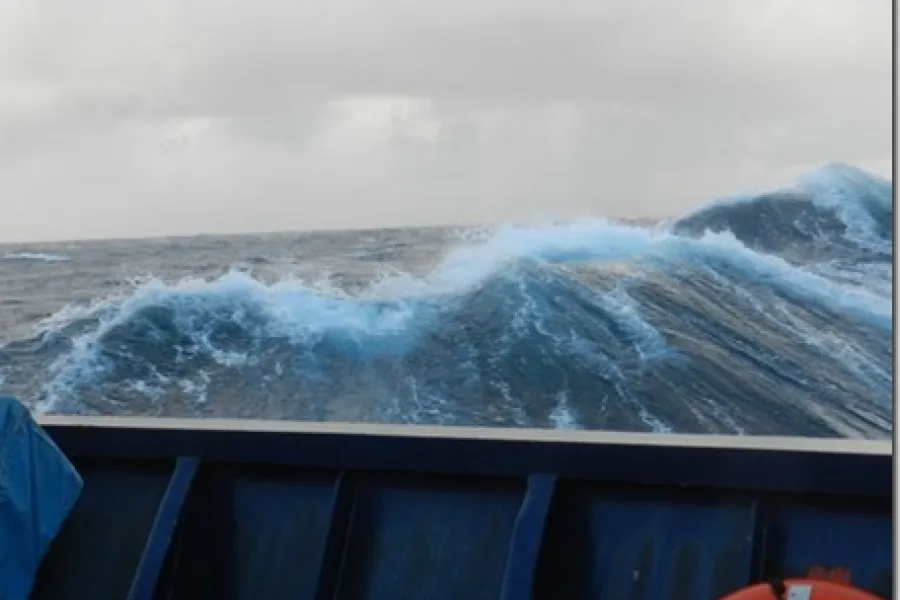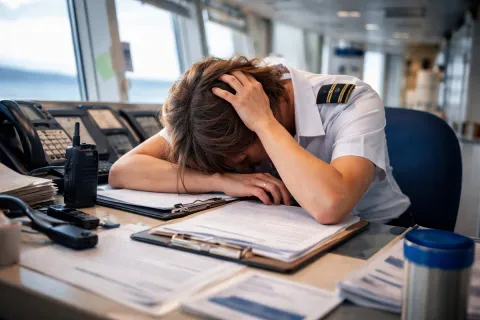
By Gemma Hunt
It is thought that people who work at sea generally become so acclimatized to the motion of the ocean that seasickness doesn't affect them. One expert suggests that this is the case for 75% of sea-workers. But what about the remaining 25%? Does an affliction of seasickness automatically mean that your career as a crew member has to come to an end? Because let's face it, at best seasickness can be unpleasant and at worst it can be dangerous, not to mention rendering you incapable of carrying out your duties. Employers want to protect their ship and ensure their passengers are well cared for. If you are sick then you're not going to be in a position to do this.
Of course there are medications (such as Hyoscine, Cinnarizine and antihistamines) available to help alleviate seasickness but these can sometimes come with side effects of their own such as drowsiness and blurred vision – not ideal when you're working within the hospitality industry. So figuring out natural methods of relieving seasickness could be the way forward for those who suffer.
Distraction techniques
Mild seasickness can sometimes be overcome simply by thinking about something else. If you feel the first few waves of nausea and begin to panic or worry, your anxiety levels will creep up and fully fledged sickness is more likely to follow through the fight or flight phenomenon. Instead, try listening to music, focusing on your breathing or (if you are working) simply powering on through. If you persuade yourself hard enough that you won't get sick, it might just happen.
Acupressure
Seasickness occurs because our body's natural balance is thrown out. There is conflict between what our eyes are seeing and what our body is feeling. Acupressure (or Sea Bands as they are more commonly known in this case) are thought to help regulate pulse thus improving the body's sense of balance and making you feel more stable. They are usually material wristbands that have a small plastic spot sewn into them which rests on the pulse in the wrist. They can be picked up cheaply in most pharmacies and almost always on-board the liner itself.
Get on deck
Old research tended to suggest that being in the lower decks, at the middle of the ship would help ease seasickness as this is where you'll experience least movement. However further studies indicate that this probably has little bearing on your symptoms. Instead, you should try and venture out on deck. Not only will the fresh air blow away the cobwebs but you will be able to see the horizon. While everything else around you is bouncing around on the waves, the horizon is one thing that stays constantly stable. Focusing on this will restore the balance between the eyes and the body and alleviate nausea.
Herbs
There are a plethora of natural herbs, plants and oils that are thought to relieve the symptoms of seasickness. Finding out which one works for you and always having a supply of it in your living quarters could be of real value to you. One of the most commonly used products for any type of nausea is ginger. With anti-inflammatory properties, ginger is thought to have a positive effect on both the brain and the gut. It can be taken in many forms, including in ginger ale, biscuits, candy or capsules. Fennel, rosemary and chamomile tea are all thought to work in similar ways. But if you can't bear to chew or ingest any of these herbs, why not try inhaling peppermint or lavender oils. These are proven to reduce dizziness and also ward off any unpleasant smells that might be triggering your nausea.
Keep hydrated
When we are sick we lose fluid. If we don't replace that fluid we become dehydrated which doesn't only hinder the recovery process, but can be dangerous in itself. Taking small, regular sips of water is important as is exposing yourself to plenty of fresh air. Some larger vessels even have saline drips and oxygen masks on offer in their hospital quarters to speed up recovery. On the subject of water, submerging yourself in it can also reduce the disturbing motion of the sea. Of course this is only really possible if you are on a ship with a pool, but if so make the most of it during your breaks. You'll feel much better afterwards.
Crew Insights
Articles and experiences shared by crew members working on cruise ship. Find out more about ship life at sea together with tips and advices for first time crew members and cruise oldtimers.












